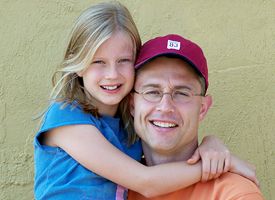 The epidemic of cheating in sports isn't so much about the athletes, coaches, commissioners or even sportswriters who let it happen. It's about the fans.
How much more can you take? You've read the stories and answered the polls, and now it's time to let your voice be heard.
Join the ESPN Conversation and tell us what you think about the past, present and future of cheating in sports. Maybe you think we're overreacting. Maybe you think Barry Bonds should go to jail. Maybe you think professional sports needs to adopt a zero tolerance policy.
We want to hear your thoughts, ideas and emotions. Selected comments will be included in a Friday story that will conclude Cheat Wave '07.
The epidemic of cheating in sports isn't so much about the athletes, coaches, commissioners or even sportswriters who let it happen. It's about the fans.
How much more can you take? You've read the stories and answered the polls, and now it's time to let your voice be heard.
Join the ESPN Conversation and tell us what you think about the past, present and future of cheating in sports. Maybe you think we're overreacting. Maybe you think Barry Bonds should go to jail. Maybe you think professional sports needs to adopt a zero tolerance policy.
We want to hear your thoughts, ideas and emotions. Selected comments will be included in a Friday story that will conclude Cheat Wave '07.
|

 The epidemic of cheating in sports isn't so much about the athletes, coaches, commissioners or even sportswriters who let it happen. It's about the fans.
How much more can you take? You've read the stories and answered the polls, and now it's time to let your voice be heard.
Join the ESPN Conversation and tell us what you think about the past, present and future of cheating in sports. Maybe you think we're overreacting. Maybe you think Barry Bonds should go to jail. Maybe you think professional sports needs to adopt a zero tolerance policy.
We want to hear your thoughts, ideas and emotions. Selected comments will be included in a Friday story that will conclude Cheat Wave '07.
The epidemic of cheating in sports isn't so much about the athletes, coaches, commissioners or even sportswriters who let it happen. It's about the fans.
How much more can you take? You've read the stories and answered the polls, and now it's time to let your voice be heard.
Join the ESPN Conversation and tell us what you think about the past, present and future of cheating in sports. Maybe you think we're overreacting. Maybe you think Barry Bonds should go to jail. Maybe you think professional sports needs to adopt a zero tolerance policy.
We want to hear your thoughts, ideas and emotions. Selected comments will be included in a Friday story that will conclude Cheat Wave '07.
